
Libraries and dinner tables may be secondary to choosing a traditional public, charter, or online school, but they are critical learning choices too, alluding to the increasingly blurred line between home life and external activities like work or school.
Editor’s note: This commentary from Andrew Campanella, president of National School Choice Week, answers the question: Do we need to keep talking about education choice?
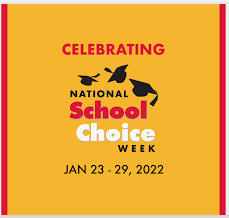 During the pandemic, learning pods took place in the strangest places, like roller skating rinks and karate studios. Today, many parents are still using learning pods, and exploring homeschooling and online schooling, too.
During the pandemic, learning pods took place in the strangest places, like roller skating rinks and karate studios. Today, many parents are still using learning pods, and exploring homeschooling and online schooling, too.
In this changing landscape, does it make sense to talk about school choice anymore? Should we talk about parental choice or learning choice or educational freedom instead?
This National School Choice Week, I tip my hat to the people making learning possible everywhere. I believe this phenomenon — learning diversifying, often outside traditional buildings and classrooms — will only increase in the future.
Here are some of the places education is being celebrated this week, and why families across America will hear the schools, parents and organizations that celebrate School Choice Week continue to raise awareness about “school choice” even as education becomes less tied to brick-and-mortar school buildings.
First, some much-deserved hat-tipping.
This School Choice Week, we celebrate traditional public schools, like Burbank Middle School, whose talented students recorded the official National School Choice Week 2022 dance. We celebrate charter schools, like the members of the North Carolina Association for Public Charter Schools, who are gathering in their state capital for a school fair calling attention to choice’s impact on student happiness. We celebrate magnet schools, like those in Connecticut, that are raising awareness of the power of diverse public education tracks for middle and high schoolers.
We celebrate private schools, like those participating in multi-school choice fairs in more than 20 states, spreading their missions and scholarship opportunities to thousands of families. We celebrate online school students and teachers as well, like those at Reach Cyber Academy in Pennsylvania, who are planning field trips for online students throughout the state to go snow tubing together.
And, of course, we celebrate homeschooling families, especially the thousands of new ones this year, who have met the challenge of unfinished learning and given their all to help kids grow.
There are also unexpected, sometimes overlooked places to celebrate learning this School Choice Week. There are parents reading stories to their children before bed or having enriching conversations as a family at dinnertime. These little ways that families choose to participate in their children’s education add up, eventually making a substantial difference in a child’s learning experience and even grade-point average and vocabulary.
And there are libraries providing free books, computer access and tutoring to kids. We’re proud that more than 200 such libraries have celebrated School Choice Week with us since 2019.
Libraries, dinner tables, bedtime routines — these aren’t what people usually mean by school choice. They are secondary to whether you choose a traditional public, charter, or online school. But they are critical learning choices too. And they allude to the increasingly blurred line between home life and external activities like work or school.
Classroom walls are dissolving, and learning is becoming increasingly diversified in when and how it takes place. Even as the vast majority of American families may continue to choose a traditional public school environment, hybrid learning is here to stay. Families are saying yes to flexibility, and yes to more learning resources everywhere.
So, why are we still celebrating School Choice Week, rather than Parental Choice Week or Learning Choice Week or Education Freedom Week?
School has always been a bigger, and more inclusive, idea than many people realize. As a reference to a place of learning, “school” stems from the Greek scholē, meaning leisure. School means time and space for the fun of discovering and exploring how the world works.
School is a life experience, not walls. School choice isn’t and has never been just about access to private or charter schools. It’s about all kids in America being able to take advantage of the learning spaces and supports that help them discover their identity and their relation to the world around them.
What’s more, over the last 20-plus years, school choice has become embedded in public consciousness — even becoming an official part of the Associated Press style guide for journalists. The term has evolved over time to encompass changing, growing choices — like transfer options in the public school sector. The term is simple enough and descriptive enough that people across all 50 states have a natural understanding of its meaning.
School isn’t just a neighborhood building. It’s what’s happening in homes, on computers and on field trips across America every week. It’s easy to forget what a great big word “school” is, which is one more reason to talk about it this National School Choice Week.
I hope you join us in celebrating learning this week — you’ll find it everywhere.
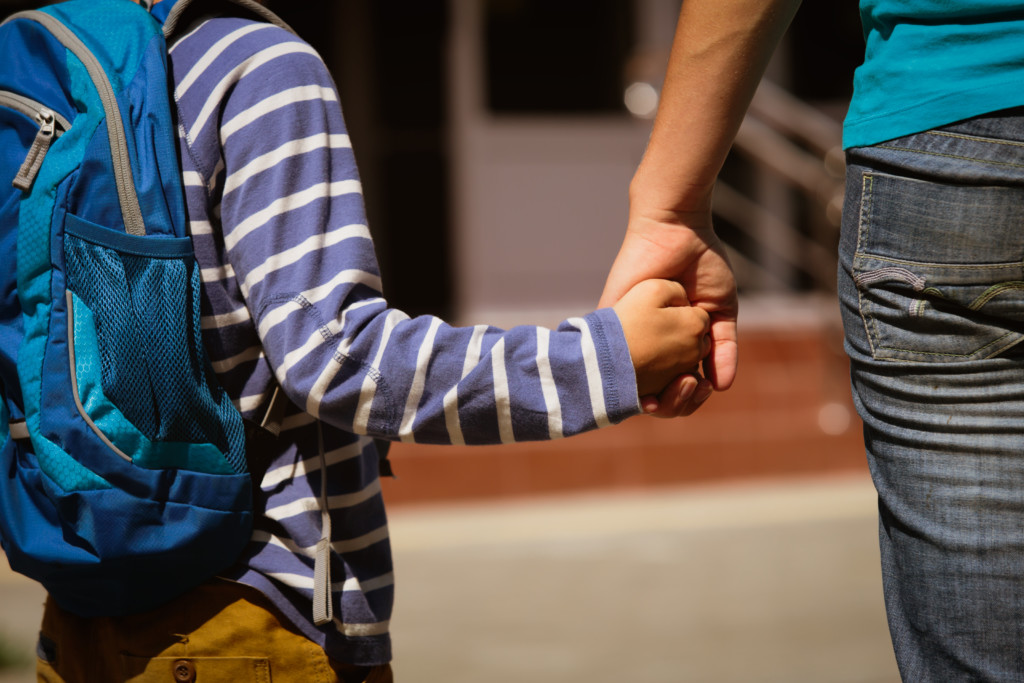 Editor’s note: This commentary from Andrew Campanella, president of National School Choice Week, appeared today on The 74.
Editor’s note: This commentary from Andrew Campanella, president of National School Choice Week, appeared today on The 74.
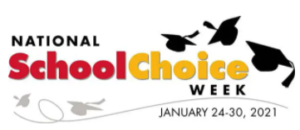 In the midst of sudden school closures and a wild election season, many families heard about school choice for the first time this past year, though it’s been around for decades. I ardently wish the circumstances had been different, but I do believe that heightened national awareness about educational choice is good news.
In the midst of sudden school closures and a wild election season, many families heard about school choice for the first time this past year, though it’s been around for decades. I ardently wish the circumstances had been different, but I do believe that heightened national awareness about educational choice is good news.
This Jan. 24 to 30 marks the 11th annual National School Choice Week celebration, though it’s the first time we focus exclusively on virtual, drive-in and at-home events. But this much hasn’t changed: As a public awareness effort, our goal each year is to reach new people with our message that every child deserves a great education to match his or her unique needs, talents and interests.
We invite and welcome everyone into the fold. Last school year, for instance, we reached out to every school in the U.S. through emails, faxes, mailings, and phone calls, and nearly 26,000 schools of all types participated. That’s about 16 percent of all schools in the U.S., all celebrating National School Choice Week.
Over the last 11 years, we have learned a lot about what helps families understand school choice and be empowered to choose schools that make their children’s lives better. Our participants remind us that there is room in our communities and, in fact, within families, for different types of schools, depending on individual students.
Traditional public schools, public charter schools, public magnet schools, online schools, private schools and homeschooling all contribute to the diversity, variety and opportunity in K-12 education today.
Parents do not view school choice as a zero-sum game. They know that different types of learning environments can and should coexist in a community because one type of school will never work for every child.
Moms and dads also do not use school choice as a catchall term for specific policies, legislation or proposals. It is how they describe the incredibly personal decisions they make for their children’s well-being. It is this definition that National School Choice Week embraces.
Unfortunately, it’s sometimes hard to hear parents’ perspectives over the louder voices in the broader debates over K-12 education. Families often say the jargon, political rhetoric and judgments about others’ choices are deeply unhelpful when they just want what is best for their kids and care little about political squabbles and arcane policies.
That is one reason why, for example, I cringe whenever I hear a supporter of school choice paint our education system with a ridiculously broad brush and portray all traditional public schools as “failing.” This caricature is not only factually inaccurate, but it ignores the incredible work done by so many public school students, parents and teachers.
I am equally disturbed, however, when opponents of school choice portray the concept as wildly controversial or somehow ruinous to anyone. These disingenuous skeptics make these arguments only because nobody — especially parents — seriously believes that all children learn in exactly the same way and will succeed equitably in just one type of school.
We all want children to succeed, teachers to be rewarded and schools to be safe and strong. In these challenging times, let’s get out of parents’ way, provide them with the information they need and respect the decisions they make for their families.
We can do that best by celebrating great schools, regardless of their type, which is exactly what happens during National School Choice Week.
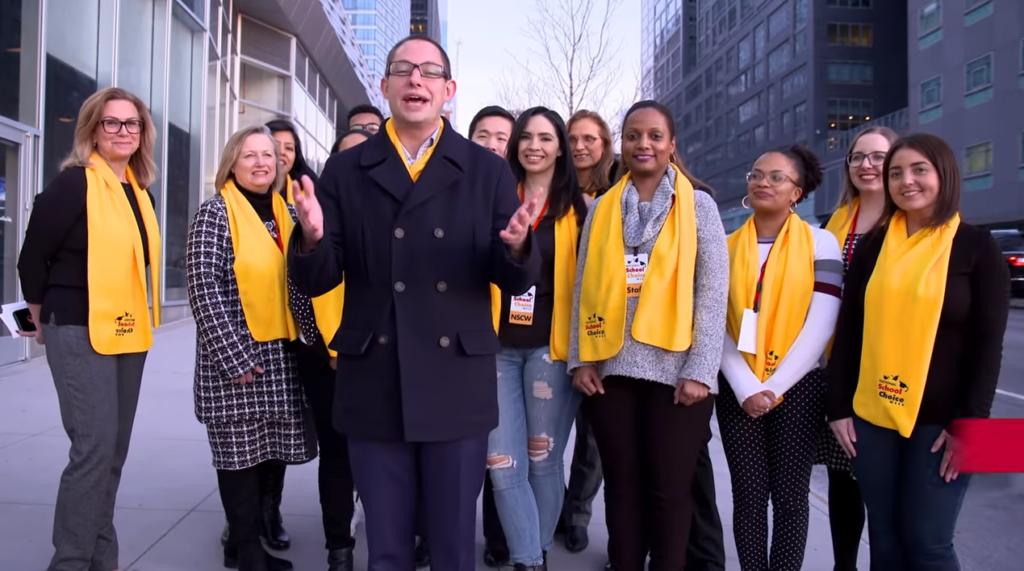
National School Choice Week president Andrew Campanella at an education choice event earlier this month in New York City held as a precursor to the annual celebration
Editor’s note: National School Choice Week, held every January, shines a spotlight on effective education options for children including traditional public schools, public charter schools, public magnet schools, private schools, online academies and homeschooling. NSCW president Andrew Campanella, whose latest book, “The School Choice Roadmap: 7 Steps to Finding the Right School for Your Child” published Jan. 21, shares his thoughts on how school choice cannot and should not be contained within a political ideology.
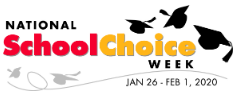 If you watch how cable news talks about education – in the rare case that it does so – you likely think school choice is a hot-button political issue. This has more to do with the way the media cover stories than with school choice itself.
If you watch how cable news talks about education – in the rare case that it does so – you likely think school choice is a hot-button political issue. This has more to do with the way the media cover stories than with school choice itself.
School choice isn’t a predictable, one-sided political statement; it’s a prudential decision people make every single day.
This year, during National School Choice Week, let’s remember that parents are making educational choices for their kids every day. Those choices aren’t based on political premeditation or activism; they are based on work schedules, life goals and personal needs. These choices aren’t easily clumped together under the category of vouchers or charter schools. They span every iteration of family situation.
Imagine the Smith family moves to Miami, Florida, evaluates the different schools available to them, and chooses to enroll their daughter in the nearest neighborhood public school. That is, quite literally, a school choice, and it may be the perfect choice for the Smiths.
Now maybe the Owens family moves into the same neighborhood in Miami and chooses to use intra-district open enrollment so their son can attend a nearby public school known for its engineering program. Again, that is a school choice.
Perhaps the Delgado family moves in one door down from the Smith family and uses their district’s magnet option for their kids to attend a school focused on the performing arts. That, too, is a school choice.
These three different school choices, all in the realm of free, public education, could each be prompted by unique, personal circumstances. Maybe it’s a medical need, a safety concern, or a learning style that is not being met. Whatever it is, at heart, parents are motivated by the personal needs of their learner and the health of their family unit.
That’s not politics, that’s personal.
Traditional public schools. Private schools. Public magnet schools. Public charter schools. Homeschooling. Online schools. These are all school choices, and the result is that there are more choices and options available for families today than at any other time in history, with most of those choices being completely free for families to access.
The point is, school choice is practiced in so many ways. Of course, like all personal decisions, school choice intersects with the public sphere and cannot be thought of in total isolation. But it remains first and foremost a personal decision that every family makes for itself. Recognizing that is the best and most respectful way to enter the dialogue.
Politicizing a personal decision isn’t going to improve discussions on school funding, quality schools, and what the future of education should look like. Clickbait is fun, cancel culture gripping, and it’s all too easy to wade into reductionist attitudes about school choice and a sea of other issues. But we can do better.
Families are choosing schools all the time. And the more intentional and invested they are in doing so the better. During National School Choice Week, let’s acknowledge the diverse ways that school choice is really practiced rather than dismissing the words to just one or two segments.
Let’s not politicize the personal decisions parents make in pursuit of their children’s happiness.
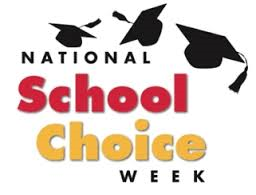 Early next year, nearly 9,000 schools around the country are expected to take part in what organizers are calling the "largest celebration of educational opportunity in American history."
Early next year, nearly 9,000 schools around the country are expected to take part in what organizers are calling the "largest celebration of educational opportunity in American history."
Florida is expected to be the epicenter. National School Choice Week is announcing today that it's kicking off its national series of events with a rally of students, educators and school choice supporters at Jacksonville's Florida Theater in January.
It's a natural place to launch a celebration of educational options, said Andrew Campanella, the president of National School Choice Week. Florida is a state where nearly 1.5 million students choose their schools, and one in four public schools is either a charter or a magnet.
"We wanted to recognize the tremendous success story of school choice in the Sunshine State by hosting the first event of National School Choice Week 2015 in Florida," he said.
The campaign has grown exponentially since it started in 2011, fueled by the growth of choice programs around the country and an increasing recognition among school districts that they, too, are part of the school choice movement. As the campaign has grown, its events have drawn celebrities and top politicians. The list of VIPs for Florida's event is not yet set.
For the first time, the Jan. 23 kickoff event will be broadcast on national television. Satelite feeds will also connect the Jacksonville event to other celebrations around the country.
Campanella said Jacksonville was chosen in part because it's been a strong base of support. Florida is home to some 1,200 of the nearly 8,500 schools already planning National School Choice Week events for next year, and more than 100 of them are in Jacksonville. Alvin Brown, Jacksonville's mayor, was one of two from Florida's major cities who issued proclamations supporting last year's events.
Schools of all types — public and private, district and charter, online and bricks-and-mortar, as well as home education families — put on events during the week of celebration.
Lisa Graham Keegan, a former state schools superintendent from Arizona who now serves as a senior adviser to National School Choice Week, said the events are designed as a series of "parties" that transcend politics.